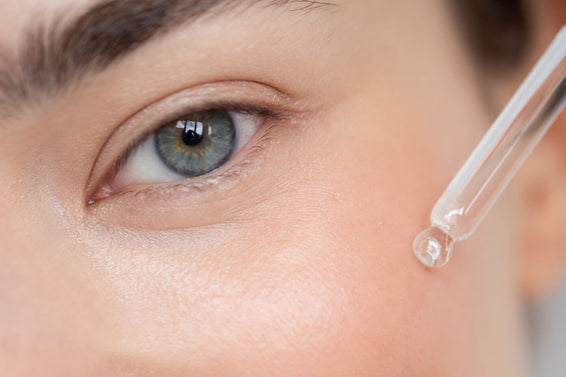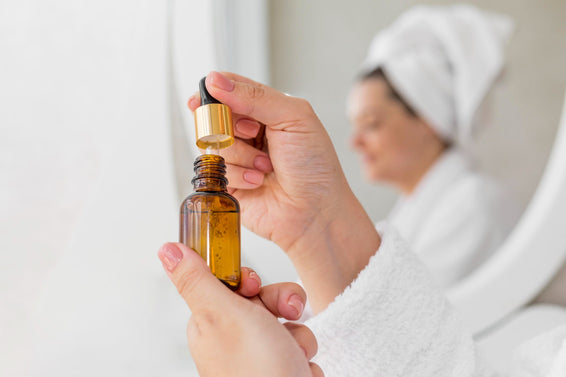Sensitive Skin
Stressed about irritated and acne-prone skin? Get rid of the dryness, acne, and blemishes that ruin the smooth texture of your skin. Here's a guide to a healthy skin care. Build the routine that keeps acne, irritation, and redness at bay. Discover products and tips that keep your skin clear and young-looking.
When you have sensitive skin, you get used to irritation and acne. However, you can still get bright and blemish-free skin when you know how sensitive skin works. Find out how to soothe sensitive skin and maintain its smooth texture.

Causes of Skin Sensitivity
Sensitive skin may look like any ordinary skin. The difference is that your skin tends to react fast to the application of products, to heat, pollution, other factors. Sensitive skin often experiences breakouts as well. You may wake up one day with red and irritated skin anywhere in your body. The symptoms of irritated skin often show up on your face.
Pimples, acne, and rashes happen for a reason. The most common cause of irritation is the exposure of skin to certain harsh ingredients. There are substances in skin care products that can trigger sensitive skin reactions. Alcohol and detergent are some of the substances that can be problematic for sensitive skin. Environmental factors such as pollution and exposure to the sun can cause irritation too.
Some of your habits can contribute to the heightened sensitivity of your skin. Poor diet, stress, and not having enough sleep can damage the skin from the inside. These factors can affect the ability of your skin to repair itself. There are various ways to detoxify the skin including exfoliation or scrubs. However, exfoliating or dry brushing the skin heavily cause irritation. Dry brushing has benefits for the skin, but it can cause damage if you don't know how to do it properly.
Keep your sensitive skin smooth and radiant by dry brushing the skin. It detoxifies the skin and prevents irritation. Check out the blog below to learn how dry brushing helps sensitive skin.
READ MORE: Why You Need to Try Dry Brushing

Symptoms of Sensitive Skin
Sensitive skin acts up when you eat greasy food or when you use a product that contains irritating ingredients. Your skin shows signs of heightened sensitivity. Learning about these symptoms can help you identify the cause. Here are the signs that you should look out for:
- Redness – Red skin can be a sign of irritation, inflammation, and allergic reaction. Redness of skin often comes with pain or itchiness. However, there are instances where the skin just turns red and inflamed. Soothe your skin with essential oils like lavender to get an even skin tone.
- Dry Patches – Dry patches of skin feels rough to the touch. They can turn crusty or flaky when not treated. Apply moisturizing oils like Argan oil to seal the moisture on the skin and prevent dryness. Argan oil is rich in essential fatty acids that keep your skin moisturized. Find out more benefits of using Argan oil for skin by visiting the page below.
- Scaling – Scaling happens when the outer layer of the skin is damaged. It sheds the damaged layer to reveal a new surface of the skin. Reduce scaling by using
- Rashes – Rashes feel itchy and may even cause bleeding. When you get rashes, make sure not to scratch them to ease the itchy feeling. Use soothing remedies or treatment products to heal rashes and alleviate the pain.

- Breakout – Acne or pimple breakout can happen anywhere in your body. The commonly affected areas are the face, back, and chest. Pores get inflamed when they are clogged. Impurities such as dead skin cells and excessive oil cause blockage.
- Itchiness and Irritation – An itchy feeling right after the application of the products make the skin develop rashes. Irritation can cause discomfort or pain and the development of rashes, blisters, flaky skin, and other symptoms.
- Burning or Prickling Sensation – A burning or prickling sensation after applying a product means that the formula is too harsh on the skin. A harsh product can damage the skin and increase its sensitivity.
Products for Sensitive Skin
Protect your skin from irritation by using suitable products. Discover what type of products work best for your skin type. Here are the various types of products you need to include in your skin care regimen:
Mild Water-Based Cleansers
Water-based cleansers dissolve in water, which makes it easy to rinse them off. They also do not clog the pores. Look for cleansers that have mild formulas. Avoid detergents, soaps, and alcohol since they can be too harsh on your skin. Try not to use foaming cleansers since they often contain foaming agents that can dry the skin.
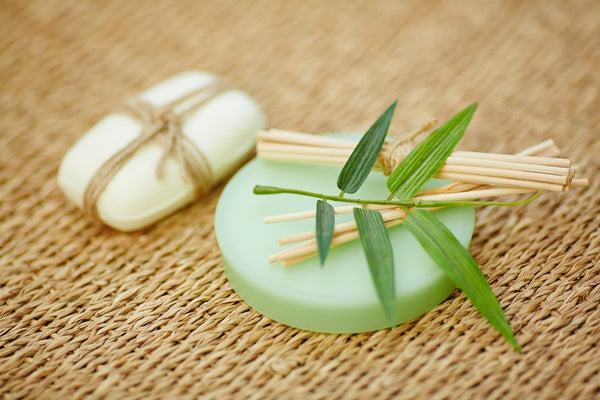
Tip: Face wipes, cleansing water, and gentle creamy formulas are good for your skin.
Balancing Toners
Balancing toners typically have astringent properties that tighten the pores. However, they also work as follow-up cleansers that can remove residues on the skin. You don’t need to avoid using toners. Just make sure to look for balancing formulas that help regulate the production of oil on face. If you see alcohol in the ingredients label, do not use the product.
Tip: Micellar water, rosewater, and chamomile are soothing and clarifying for skin. Face mists are great for sensitive skin due to their hydrating properties.
Fast-Absorbing Moisturizers
Sensitive skin can be dry, oily, or normal. When looking for moisturizers for sensitive skin, you need to consider whether your skin tends to get dry or oily. Check the thickness of the formula and if it suits your skin. Avoid moisturizers that weigh heavily on the surface of the skin because they can clog the pores. Petroleum-based moisturizers are not good for your skin too.
Tip: Hydrating products are often non-comedogenic due to their fast-absorbing abilities. Hydrating moisturizers help keep the skin soft and smooth.
Hypoallergenic Makeups
Makeups are part of everyday skin care. However, most makeups contain preservatives and other irritating ingredients. Look for hypoallergenic makeups made for sensitive skin. Their formulas contain little to no harmful chemicals that can trigger irritation.
Tip: There are brands that offer green cosmetics or products made from organic ingredients. The ingredients they use are safer for your skin.
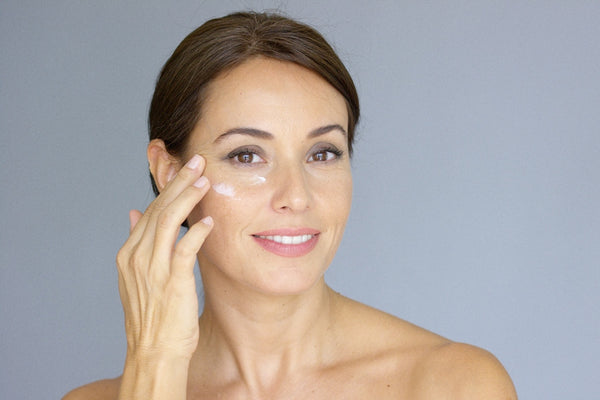
Fragrance-Free Sunscreen
Sunscreens contain many chemicals that protect your skin from UV rays. However, these chemicals can be the culprit behind skin irritation. If you experience having rashes, redness, and other symptoms of irritated skin frequently, see if there is fragrance listed on the label. A fragrance is just a word used for chemicals that give your sunscreen a scent.
Tip: Sunscreen can have natural scents without using chemicals. Plant oils, extracts, and other organic ingredients can give sunscreen a soothing fragrance.
Gentle Essential Oils
Not all essential oils are gentle on your skin. However, there are soothing oils that have therapeutic effects. They heal the skin while providing nourishing vitamins and minerals. Avoid using potent essential oils and remember to dilute oils before applying to skin. You can use gentle oils that have antibacterial and anti-inflammatory effects.
Tip: Lavender oil, chamomile oil, and tea tree oil are recommended oils for sensitive skin. They kill bacteria and fungi that can cause irritation. Topical oils have therapeutic effects that alleviate symptoms of sensitive skin. Discover more uses and benefits of using natural essential oils for sensitive skin.
READ MORE: Natural Oils
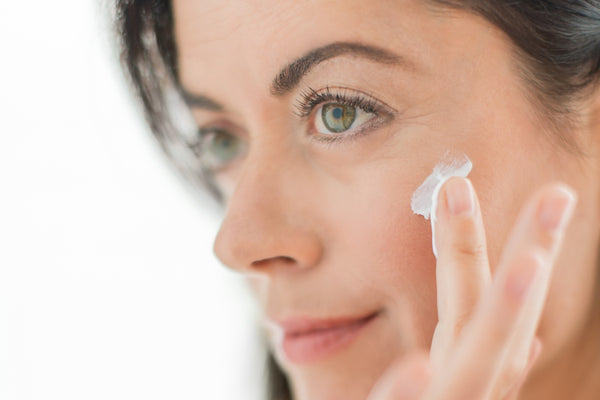
Relief for Sensitive Skin
When sensitive skin acts up, the first step you should do is to determine the cause. If it’s a product, stop using it immediately. To treat sensitive skin, you can get medications or treatment products that alleviate the symptoms of irritation. Find out what type of treatment you should get for sensitive skin.
Treatment Products
Treatment products are skin care products that have extra benefits. Look for anti-inflammatory and antibacterial formulas to reduce risks of irritation. There are treatment products you can use daily including topical oils. Cleansers, toners, and moisturizers for sensitive skin are formulated to alleviate its symptoms.
Medicine
Irritation due to use of the wrong product can be an allergic reaction to a certain ingredient. Prescribed allergy medicines can alleviate symptoms of irritation especially itchiness. Medicine can be topical or taken orally. Before you take any kind of medicine, consult a doctor first.
As an alternative to topical medicine, use skin oils. These are organic oils that provide the basic needs of skin while having healing effects that can alleviate symptoms of irritation and sensitivity. Look for the best topical oil for sensitive skin in the page below.
READ MORE: Topical Oils

Home Remedies for Sensitive Skin
Other than using products and medicine, you can use home remedies to soothe sensitive skin. Try the following tips on healing skin irritation:
- Milk – Milk does not only moisturize the skin. It has anti-inflammatory effects that help alleviate itchiness. It eases the dryness the skin and makes it softer. Use a cotton pad and dip in raw milk. Put it on face and leave it on for a few minutes before rinsing face with water.
- Lavender Oil – Lavender oil soothes the skin with its therapeutic properties. Apply to affected areas that are dry, irritated, or inflamed.
- Castor Oil – Castor oil has one of the strongest anti-bacterial properties among all essential oils. Use it to minimize the size of inflamed skin due to acne, pimples, and rashes. It speeds up healing of skin as well. Visit the page below to find more benefits of castor oil for sensitive skin.
READ MORE: Castor Oil
- Honey – Honey helps the skin heal itself while providing moisture. It protects skin from infection while soothing redness and irritation. Mix it with coconut oil and milk before applying to face. Rinse it off after 20 minutes.
- Aloe Vera – Aloe vera is good for sensitive skin due to its abundance of moisture. It relieves pain and itchiness, which helps soothe irritated skin. Apply it to affected areas regularly.
- Green Tea – Green tea is rich in antioxidants that protect the skin from damage. It helps repair damage to skin tissues too. Steep a green tea bag in warm water for a few minutes. Rinse face with the water after it cools down.

How to Protect Sensitive Skin
Having sensitive skin is not an issue as long as you know how to take care of it. There are simple ways to protect your skin from irritation. Here are some easy ways to maintain a healthy skin:
- Drink lemon water every morning. Lemon is rich in vitamin C and antioxidants that can protect skin from damage. It helps remove toxins in your blood to prevent skin concerns such as acne and irritation.
- Avoid eating greasy or sugary food that can trigger irritation and dryness. Have a healthy diet that nourishes the skin
- Avoid taking long hot showers. Hot water removes the necessary moisture from the surface of the skin, which leads to dry skin. Use lukewarm water for long baths.
- Wear gloves when you wash clothes, clean dishes, or scrub tiles. Detergents and soaps you use can dry the skin and cause irritation.
- Choose your products wisely. Learn about the ingredients you need to avoid and which products can help your skin. Make sure that you're using the right product properly. For a list of skin care products, check out this page.
READ MORE: Skin Care Products
- Manage your stress. Stress can speed up the production of hormones linked to oil production. Excessive oil on the skin can clog pores and cause a breakout.
Sensitive skin is not something you should stress about. You just need to understand what it needs and what products work best for your skin. Choose the right products for a healthy skin care routine and get the beautiful skin that you deserve.







